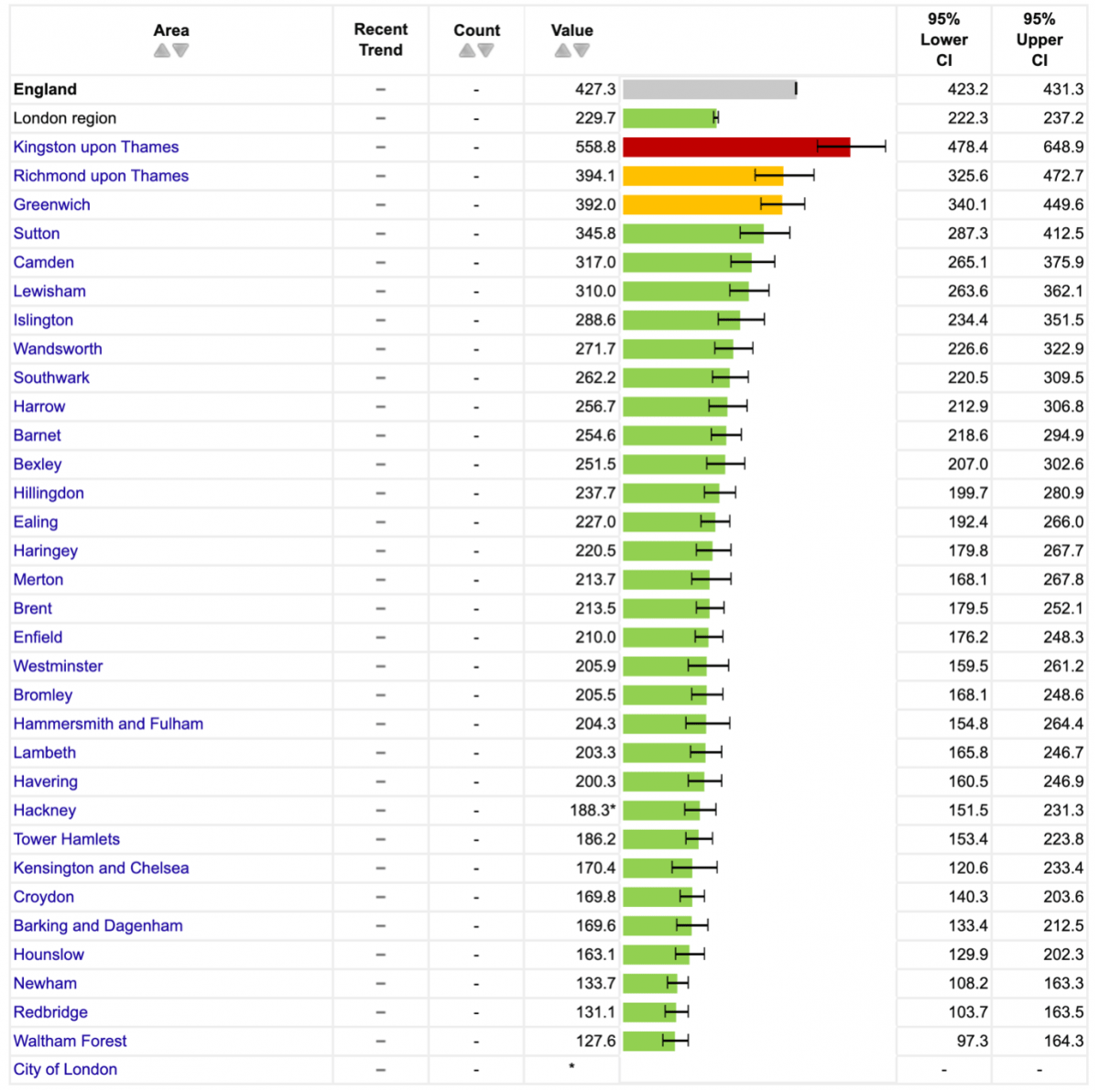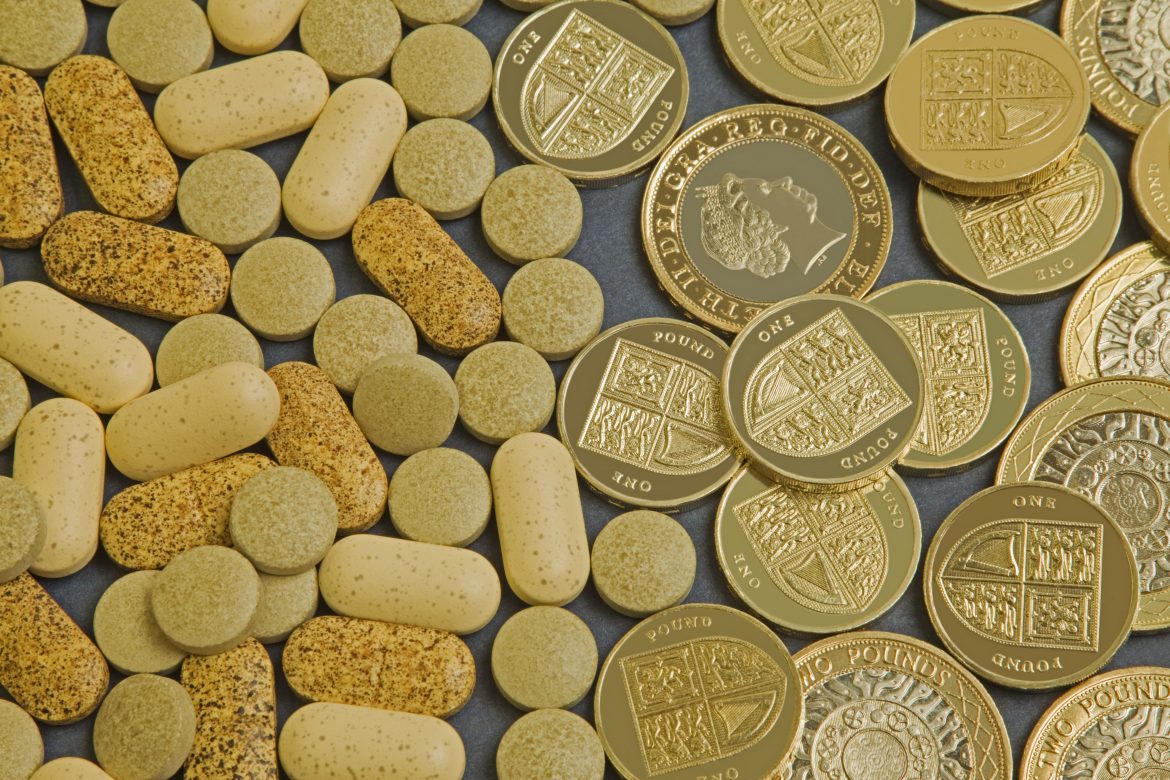Kingston Council and the NHS have created a new fund designed to help local residents live healthier lives.
The fund was made possible by pooling together unexpended Covid funding with money from the NHS Kingston Trust and aims to reduce the number of people who develop chronic illnesses within the borough, such as cancers, heart disease or a stroke.
The money will be provided over a four-year span, and will be invested in campaigns designed to lower alcohol consumption, stop smoking and promote healthy eating.
Councillor Sabah Hamed, Portfolio Holder for Adult Social Care and Health, said: “This is a rare opportunity to be able to fund a wider range of programmes that will deliver real change for communities and families across our borough.”
Hamed also highlighted the long-term value this fund will have on reducing the strain on the NHS as healthier people will need fewer services.
Statistics from Public Health England for 2022 show that in the intended areas of target for this campaign, Kingston could improve.
Alcohol
Currently, Kingston is the second worst borough in London for the admission of under 18s to hospital as a result of alcohol-specific conditions. While the London average records 14.3 per 100,000 under 18s admitted to hospital, Kingston records 25.3 per 100,000.
Furthermore, alcohol-related mortality is higher in Kingston than the London average, sitting at 32.8 per 100,000 compared to 32.5 per 100,000 respectively.
Smoking
Currently, 10.5% of Kingston adults are smokers, just below the London average of 11.5%. However Kingston is one of the worst boroughs in London for maternal smokers, with 5.5% of women being smokers at time of delivery, compared to the London average of 4.5%.
Diet
Finally, all statistics show that Kingston sits higher than the national average for the consumption of a healthy diet, with 57.6% of Kingston residents eating their 5 a day compared to 55.8% across the whole of London.
Money from this fund will be allocated to existing campaigns and services such as the ‘Kick It’ stop smoking service and the ‘Connected’ service, helping Kingston residents suffering from alcohol and drug abuse.
Kingston upon Thames is a relatively healthy borough, however, further statistics from Public Health England outline areas of health-related inequality which are not targeted by this campaign where Kingston underperforms compared to not just the rest of London, but the whole nation.
| Measure | Kingston Average | National Average |
| Vaccine coverage of MMR and Dtap IPV Hib (<2 years) | 86.9% | 89.2% |
| Hospitalisation for self-harm related injuries (10-24 years) | 558.8 per 100,000 | 427.3 per 100,00 |
| Hospitalisation of accidental and deliberate injuries of children and young people (15-24 years) | 126.9 per 100,00 | 118.6 per 100,00 |
| Prevalence of asthma (<19 years) | 170.1 per 100,000 | 131.5 per 100,00 |
| Hospitalisation for mental health issues (<18 years) | 123.6 per 100,000 | 99.8 per 100,000 |
| Attendance of people to A&E (0-4 years) | 778.6 per 100,00 | 762.8 per 100,00 |
Furthermore, since its last survey in 2020, it was found that 0.4% fewer children are being vaccinated and the prevalence of obesity within the borough has increased by 16.8%.
Mirroring the data in the table above, Kingston also counted the most cases of hospitalisation for self-harm related injuries out of any London borough by a significant margin.

In alignment with this data, Kingston residents feel mental health services are being underfunded.
Kingston resident, Nikki Simmons, said: “I hope this will include mental health funding. The stress of the current cost of living crisis compounded by the threat of the ULEZ tax which this council refuses to take an active stand against is taking its toll on the poorest and most vulnerable in this borough already and it will only get worse.”
In the UK, anyone feeling emotionally distressed or suicidal can contact Samaritans by calling 116 123 or emailing jo@samaritans.org





